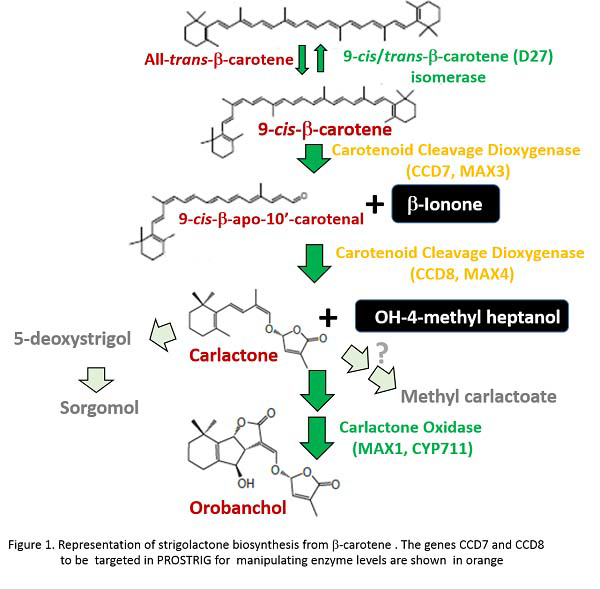PROSTRIG Project
Delivering novel maize genotypes with improved resilience and PROductivity through the application of predictive breeding technologies to modulate STRIGolactone levels
Delivering novel maize genotypes with improved resilience and PROductivity through the application of predictive breeding technologies to modulate STRIGolactone levels
PROSTRIG has been designed in full alignment with the Strategic Research Agenda of the Joint Programming Initiative on Agriculture, Food Security and Climate Change addressing the challenges of sustainable agriculture, food security and impacts of climate change. PROSTRIG’s aims directly contribute to at least 6 of the 17 UN Sustainable Development Goals articulated in the 2030 Agenda for Sustainable Development. These Goals address poverty alleviation, ending hunger, achieving food security and improved nutrition through sustainable agriculture, and combating climate change and its impacts in the context of sustainable and environmentally benign agricultural intensification to feed an ever increasing world population. PROSTIG is also aligned to Defra’s Genetic Improvement Networks and will have generic utility to the BBSRC Designing Future Wheat program. We focus on maize, a major European and global food security staple and feed crop requiring excessive nitrogen and phosphorus fertilizer inputs, major contributors to greenhouse gas emissions, directly impacting climate change and environmental degradation world-wide. Such inputs can be ameliorated by redesigning the architecture of the root system by increasing root branching. Our program is congruent with two areas specifically mentioned in the call text. We use new breeding technologies to develop novel genotypes with superior productivity and resilience requiring minimal fertilizer inputs by modifying root architecture. We also leverage the below soil ecosystem as the novel varieties will stimulate hyphal branching in fungal symbionts that form arbuscular mycorrhizae, known to improve uptake of the essential nutrients phosphate and nitrate. Thus PROSTRIG will enable directly greater crop intensification in a highly sustainable manner. The conduit for the creation of the new maize phenotypes is increasing strigolactone biosynthesis by enhancing the expression of two endogenous maize genes using CRISPR/Cas9.

...